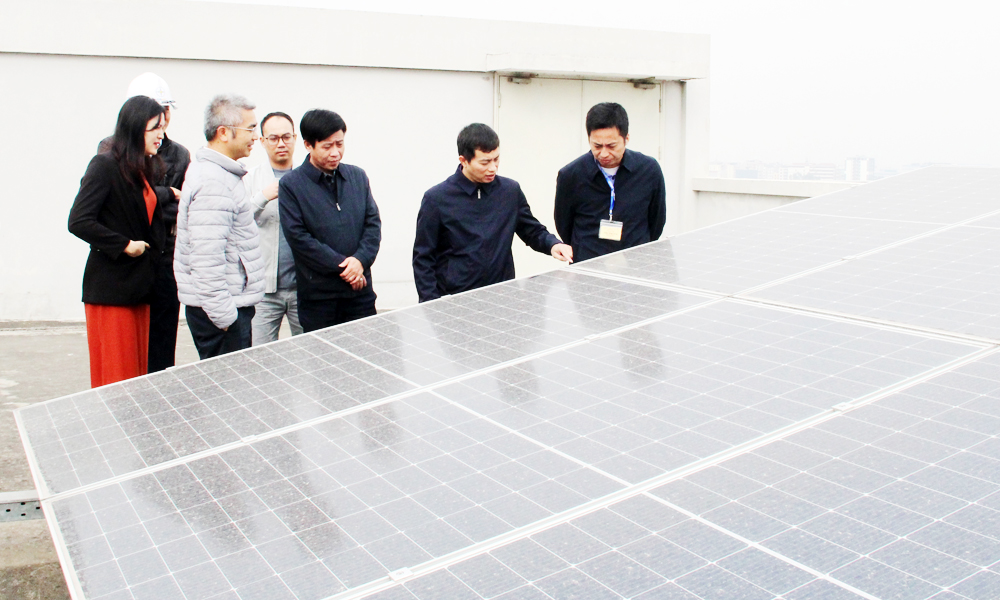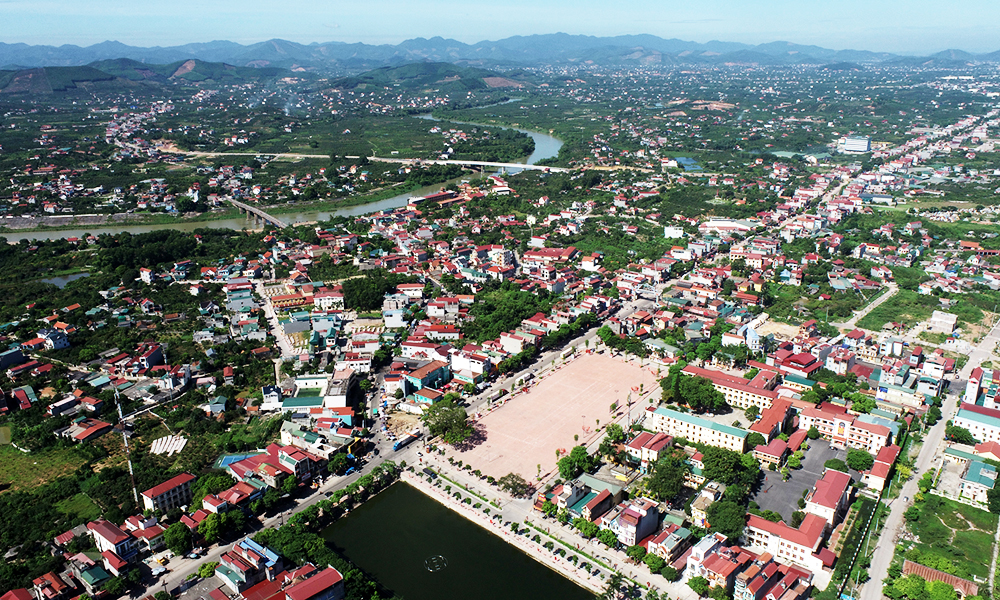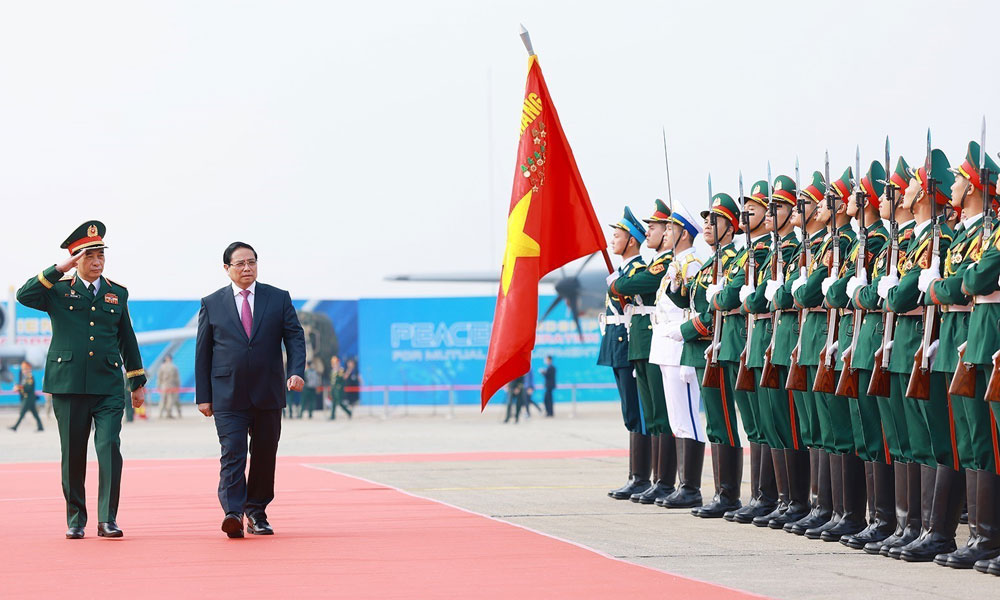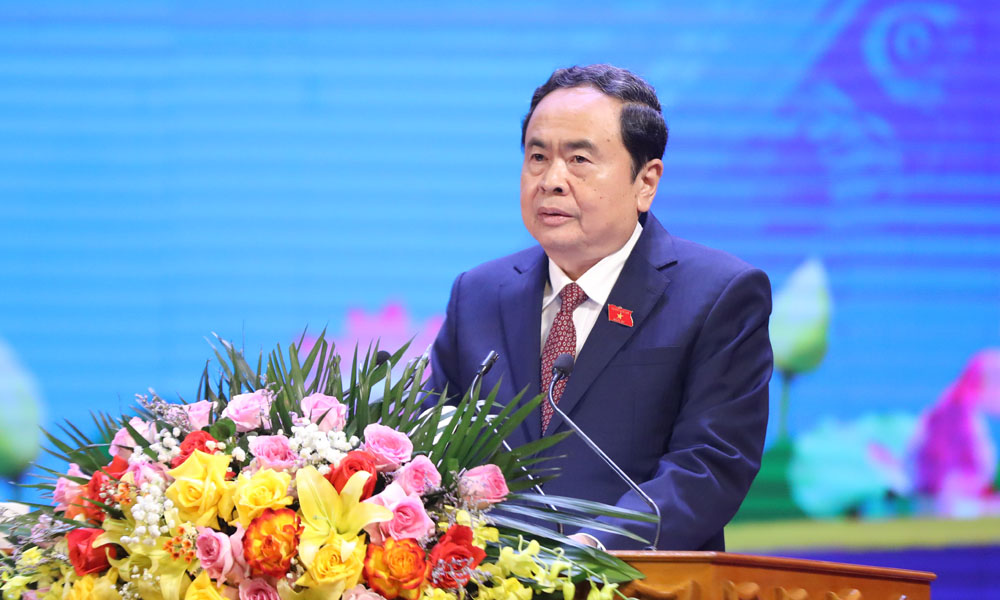Endogenous drivers for the economy
Driven by increasing domestic consumption, production, and exports benefiting from global trade shifts, along with high-quality foreign direct investment (FDI) inflows and the government's determination to unlock public investment capital, Vietnam's economy is poised to move confidently into 2025.
Gradually steady recovery momentum
On December 20, the expert group from HSBC Vietnam released an overview of the 2024 macroeconomic situation.
 |
|
Cargo handling at the Hoa Phat General Port in the Dung Quat Economic Zone (Quang Ngai Province). |
Accordingly, prolonged geopolitical tensions, the reversal of globalisation trends, scenarios surrounding the US presidential election, and other economic-political events have rendered the already fragmented global economic landscape increasingly complex.
For Vietnam, an open and deeply integrated economy, despite a challenging start in the first quarter, the economic outlook has turned more positive across multiple fronts as the recovery momentum steadily strengthened throughout the year.
According to Ngo Dang Khoa, Director of HSBC Vietnam's Foreign Exchange, Capital Markets and Securities Services Division, growth improved significantly, unexpectedly rising to 6.9% in the second quarter and 7.4% in the third quarter.
The accelerating economic recovery in the latter half of 2024 was driven by production, with the industrial production index growing by 8.4% over the first 11 months compared to the same period last year.
Khoa further noted that these results were bolstered by positive trade data, with the total import and export turnover of goods for the first 11 months increasing by 15.4% compared to the same period in 2023.
The initial trade recovery focused on electronics, and by the third quarter of 2024, signs of expansion emerged as textile and garment exports surged by 16.7% year-on-year.
Vietnam continued to attract foreign direct investment (FDI) with a fundamentally optimistic outlook. According to statistics, realised FDI in Vietnam during the first 11 months of 2024 was estimated at 21.68 billion USD, a increase year-on-year of 7.1%.
This marks the third consecutive year Vietnam has achieved FDI disbursement exceeding 20 billion USD. Existing FDI enterprises have also committed to further investments to support Vietnam's expanding production capacity.
Another driving force comes from Government support measures across various domestic sectors. Policies such as environmental tax reductions on fuel and value-added tax cuts on specific goods and services have been extended until the end of 2024.
Throughout the year, the government has demonstrated strong determination to promote public investment, focusing on strategic infrastructure projects connecting economic hubs, such as Long Thanh International Airport and Ring Road No. 4.
Meanwhile, fiscal and monetary policies have remained adaptive to accelerate economic recovery, aiming to help Vietnam achieve its growth targets for 2024.
At the seminar themed “Investment 2025: Decoding Variables and Identifying Opportunities”, Dr. Luong Van Khoi, Deputy Head of the Central Institute for Economic Management (CIEM), noted that the 2024 growth results marked a significant breakthrough.
The estimated growth rate of 7.04% represents a recovery of the pre-Covid-19 growth trajectory.
The achievements in 2024 have paved the way for Prime Minister Pham Minh Chinh to sign Directive No. 137/CD-TTg on December 20, 2024, focused on promoting economic growth in 2025.
A key highlight is the ambitious goal of accelerating growth, striving for a national GDP growth rate of over 8%—surpassing the target set by the National Assembly.
The directive emphasises vigorously driving economic growth while ensuring macroeconomic stability, controlling inflation, maintaining key economic balances, and achieving a high surplus. These priorities will form the cornerstone of the government’s policy agenda in 2025.
According to HSBC experts, the expectation of positive growth is well-founded. The manufacturing sector has overcome the challenges of 2024, providing strong support for export growth, which has reached double-digit levels.
This growth has positively and evenly impacted sectors such as agricultural products and supporting industries.
Regarding FDI, HSBC experts predict that capital inflows into manufacturing are likely to continue growing. Notably, the recent visit by Party General Secretary To Lam to the US has opened up investment opportunities from major electronics companies like Meta and Shunsin, a subsidiary of Foxconn.
This highlights Vietnam's improving production capacity. Beyond electronics manufacturing, high-value-added sectors have also garnered attention from multinational corporations such as Google and NVIDIA. The dual transition will serve as a key growth driver for Vietnam's economy moving forward.
A critical focus for 2025 will be continued investment in infrastructure, as it serves as a cornerstone for economic growth and attracting high-quality FDI into Vietnam.
The Government has planned public investment capital of 791 trillion VND for 2025, an increase of 12.4% compared to 2024. Public investment disbursement is expected to reach approximately 95% of the target for the year, positioning infrastructure development as a significant "launchpad" for Vietnam to rise into a new era.
Highlighting that exports are also anticipated to remain a crucial driver of Vietnam's growth as the country enters 2025, along with Vietnam's competitive advantages in exports, Ramla Khalidi, Resident Representative of the United Nations Development Programme (UNDP) in Vietnam, expressed confidence that Vietnam will emerge as the "growth star" of the ASEAN region in 2025.
 Bắc giang
Bắc giang













Reader's comments (0)